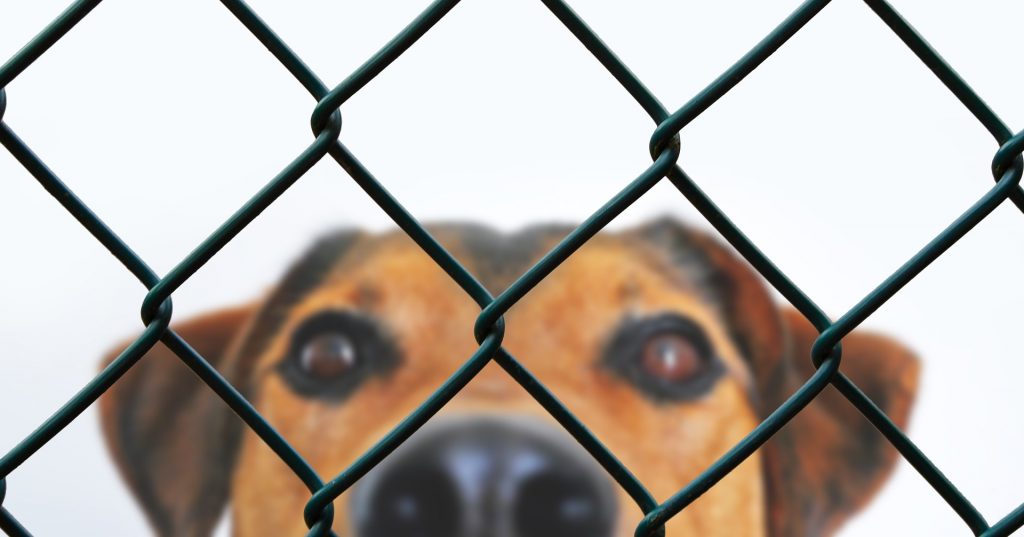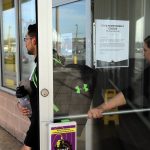We are all presently living with the terror of the COVID-19 virus. Like many, I feel very helpless and vulnerable during this national siege. I feel the need to run away, but to where? I hate the fact that there is currently no stability in our lives as things change on a daily basis.
Plan ahead
Of course, my pets are on my mind — their care and well-being. Planning ahead and preparedness should always be in our plan, as life is unpredictable. Having two weeks of supplies for both you and your pets is a good rule of thumb. If we are quarantined, it’s very likely that they’re going to be quarantining our pets as well, at least for 14 days. So one of the things that is recommended is to be sure that you have enough food and medications to self-quarantine you and your pet for that period of time; but also understand that if you get hospitalized, you’re going to have to have arrangements with somebody to take care of your pets during that time. These are things that you should be planning ahead for.
At the moment, some people who are at risk of infection are being asked to self-isolate for a period of 14 days. Self-isolation means that you should not go out. However, you can still get things delivered, so you could still get food (and pet food) delivered from your local supermarket.
Have all necessary supplies available, and this all applies to pet parents as well!

What vets are saying
Health officials across the U.S. and all over the world are on high alert due to COVID-19, a disease that causes flu-like symptoms in people, including mild to severe respiratory illness with fever, cough, and difficulty breathing. Veterinary professionals are receiving questions from their clients and their teams, and the AVMA is able to provide credible information and resources to assist with responses to those questions.
To ensure the resources provided are as accurate and up-to-date as possible in this continuously evolving environment, the AVMA is in regular contact with CDC, FDA, and USDA; other state, national, and international veterinary and public health expert groups; and intergovernmental organizations (such as the WHO and OIE) to learn the latest developments and their potential impacts on veterinarians, patients, and clients.
Here is some key information about COVID-19:
- The betacoronavirus that causes COVID-19 is SARS-CoV-2 (formerly 2019-nCoV).
- Person-to-person and community spread has been reported in numerous countries, including the United States.
- Transmission primarily occurs when there is contact with an infected person’s bodily secretions, such as saliva or mucus droplets in a cough or sneeze. Transmission via touching a contaminated surface or object and then touching the mouth, nose, or possibly eyes is also possible, but appears to be a secondary route. Smooth (non-porous) surfaces (e.g., counter tops, door knobs) transmit viruses better than porous materials (e.g., paper money, pet fur) because porous, especially fibrous, materials absorb and trap the pathogen (virus), making it harder to contract through simple touch.
- There are currently no antiviral drugs recommended or licensed by FDA to treat COVID-19, and there is no immunization available.
- Cases of COVID-19 and community spread are being reported in most states.
The best way to avoid becoming ill is to avoid exposure to the virus. Taking typical preventive actions is key.
Infectious disease experts and multiple international and domestic human and animal health organizations agree there is no evidence at this point to indicate that pets become ill with COVID-19 or that they spread it to other animals, including people. If you are not ill with COVID-19, you can interact with your pet as you normally would, including walking, feeding, and playing. You should continue to practice good hygiene during those interactions (e.g., wash hands before and after interacting with your pet; ensure your pet is kept well-groomed; regularly clean your pet’s food and water bowls, bedding material, and toys).

Use common sense
Out of an abundance of caution, it is recommended that those ill with COVID-19 limit contact with animals until more information is known about the virus. Have another member of your household take care of walking, feeding, and playing with your pet. If you have a service animal or you must care for your pet, then wear a face mask; don’t share food, kiss, or hug them; and wash your hands before and after any contact with them. As always, careful hand washing and other infection control practices can greatly reduce the chance of spreading any disease.
I lived through the natural disaster of the 1972 flood with my family and furkids. I remember the horror of being awakened early that morning by blasting megaphones telling us to evacuate. My father feared that the river had already burst through its banks, or was about to. His panicked need to protect his family was obvious, and he ordered us to the car immediately, leaving with nothing but the clothes on our backs. I was able to throw our senior cat and puppy into the car but was unable to go back and retrieve the others. The cat survived and was found on the second floor, terrified but alive. I had left the parakeet on the third floor, and he also survived. But our dog perished, and I forever mourn that loss.
I was just watching a repeat episode on Pitbulls and Parolees where they had to evacuate many dogs at their rescue due to the hurricane approaching New Orleans. They took a busload of dogs to their evacuation site in a zone that had not flooded in 30 years. The others stayed behind to battle out the hurricane in their warehouse building, moving the dogs to the second floor. As nature is never predictable, their warehouse was primarily spared from major damage and flooding while their evacuation center and the surrounding area was flooded. Although shaken and traumatized by the unexpected events, they courageously pulled together to gather supplies for the dogs in their charge.
Those memories of the 1972 flood are forever etched in my brain. And this current threat is very worrisome to me as well. I fear the unknown. We must move ahead by being informed, considerate, and cautious.
Cleanliness is no longer simply important, but a necessity now. Be conscientious of others and follow instructions as they develop. We will need our pets now more than ever, for the security and comfort they give us on a daily basis. Love them, and each other. We shall overcome. Don’t panic! Stay informed – read unfiltered information from veterinarians as more data becomes available.
Pet expo rescheduled
The Pet Expo has been rescheduled to Oct. 10 and 11. Although we will have to wait a bit, I expect that this venue will be bigger and better than ever.
Dog bless.
Resource: American Veterinarian Medical Association

Judy Endo is the author of Paws-itive Pet Tales. A lifelong resident of the Wilkes-Barre area, she has been a professional dog trainer/competitor as well as a lifetime animal lover and strong supporter of animal rescue. Contact: judyendo@outlook.com




